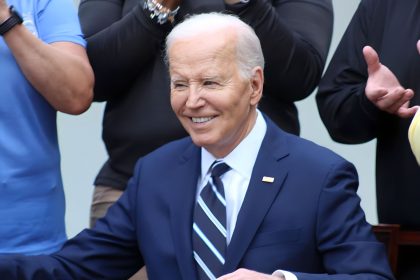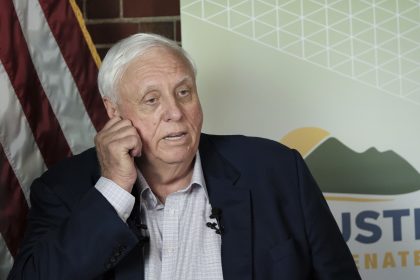A Reduced Technology Modernization Fund Means Government Must Invest Wisely in Emerging Technologies
COMMENTARY

The fiscal year 2024 funding package cut approximately $100 million from the Technology Modernization Fund. This action is perplexing, especially given that the fund is crucial to modernizing federal information technology by enabling an innovative funding model that allows the government to respond in real time to critical needs.
In response to TMF cuts, Rep. Gerry Connolly, D-Va., said, “The draconian zeroing out and rescinding of these vital funds will only jeopardize the health and safety of veterans, first responders and families that rely on government services every day. We have got to stop treating government IT as a luxury.” Connolly is correct.
IT is not a luxury; it is a necessity.
With less available funding, the government must focus on the best technologies that are currently available to help solve complex public sector problems, optimize operations and modernize IT systems to better serve the public.
To support digitalization transformation efforts, the TMF must move beyond modernizing legacy systems and consider investing in emerging technologies like artificial intelligence and quantum computing.
TMF Investments Should Consider All Emerging Technologies Like AI and Quantum Computing
The White House has touted TMF as a game-changer for public agencies and actions by the administration seem to support using TMF funding toward emerging technologies. A recent Executive Order on AI calls on the government to prioritize generative AI projects, and the TMF program office is requesting that federal agencies submit proposals using AI to reach mission objectives.
While AI is vital to digital transformation, government agencies should know that AI can work synergistically with other emerging technologies like quantum computing. This powerful computational technology is uniquely able to tackle the myriad of complex optimization problems that are hindering nearly all federal agencies such as improving emergency response, optimizing supply chains and logistics, and accelerating critical infrastructure projects. AI and quantum computing together can better address public sector challenges.
Additionally, we believe most quantum applications will be quantum-classical hybrid technologies that tap into the computational power of both quantum computing and classical computing and can often provide answers faster or more efficiently than classical computation alone.
According to Robin Carnahan, administrator of the U.S. General Services Administration, TMF investments are already helping millions of veterans get better access to benefits, expediting food inspections and improving delivery of services to taxpayers.
Imagine what this fund could do if agencies engage with all available emerging technologies? For example, quantum computing could optimize staff scheduling at veterans’ facilities to help provide better care for veterans. Quantum applications are already being used in the private sector for staff scheduling and advanced medical imaging.
Furthermore, the most advanced quantum computing systems available today, quantum annealers, are available via the cloud, so TMF funding to develop these applications will be cost effective for federal agencies.
Strong Bipartisan Congressional Support for Quantum Technology Adoption
Congress is already recognizing the power of quantum and is considering bipartisan initiatives urging the administration to identify use cases where quantum technologies could provide solutions to public sector problems in the near term.
For example, the FY2024 National Defense Authorization Act, which was approved and signed into law, directs the Department of Defense to create a quantum pilot program within 24 months that will test, evaluate and use quantum applications to address problems facing our defense, military and national security operations.
The National Quantum Initiative Act reauthorization moving through Congress includes near-term application development provisions, and quantum sandbox legislation would create an environment where innovators can develop and test demonstrations, proofs of concepts, and pilot applications of near-term quantum technology in less than two years.
Global Leaders Are Developing and Deploying Quantum Technologies
Global leaders are also embracing the development and deployment of quantum and quantum-classical hybrid applications. For example, the Japanese government supported building quantum applications to reduce CO2 emissions during waste collection, optimize construction projects and improve tsunami evacuation routes.
In Australia, the government is exploring quantum computing for transportation optimization, and the Australian army has built applications enabling autonomous vehicles to optimize last-mile resupply operations for defense and emergency response.
As of right now, the United States has not delved too deeply into application development and risks losing the country’s critical edge in quantum computing innovation and the benefits that these advancements can provide to the public sector.
To support the government’s digital transformation efforts and achieve the TMF program’s objectives of improving interoperability, upgrading legacy systems and enhancing digital experiences, the fund should not be constrained to focusing on just one emerging technology.
The right approach is for the government to view technologies holistically, rather than in silos.
Remaining TMF funds should fully support and encourage agencies to use all emerging technologies, including quantum computing and AI.
Allison Schwartz is vice president of Global Government Relations and Public Affairs at D-Wave, and has more than 25 years of experience as a public policy strategist. She has expertise in a variety of technology issues including quantum, privacy, fintech, public sector and more. She can be reached on X.






















